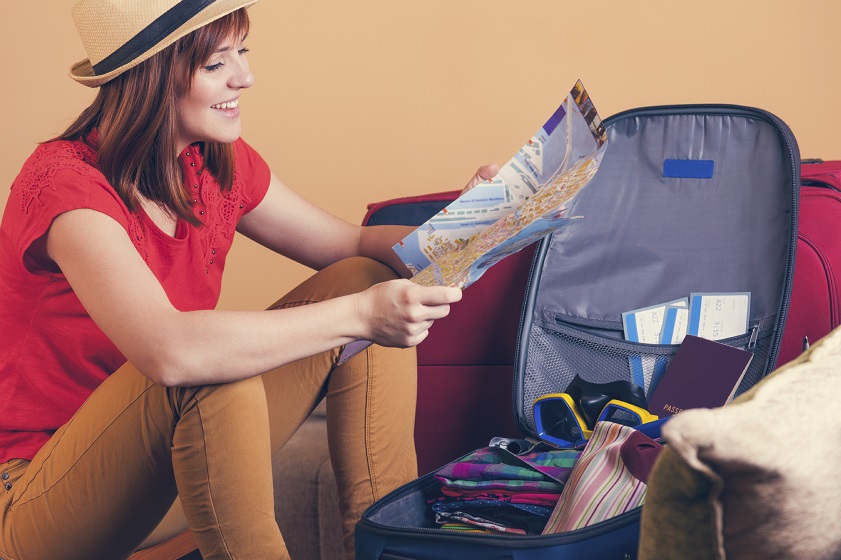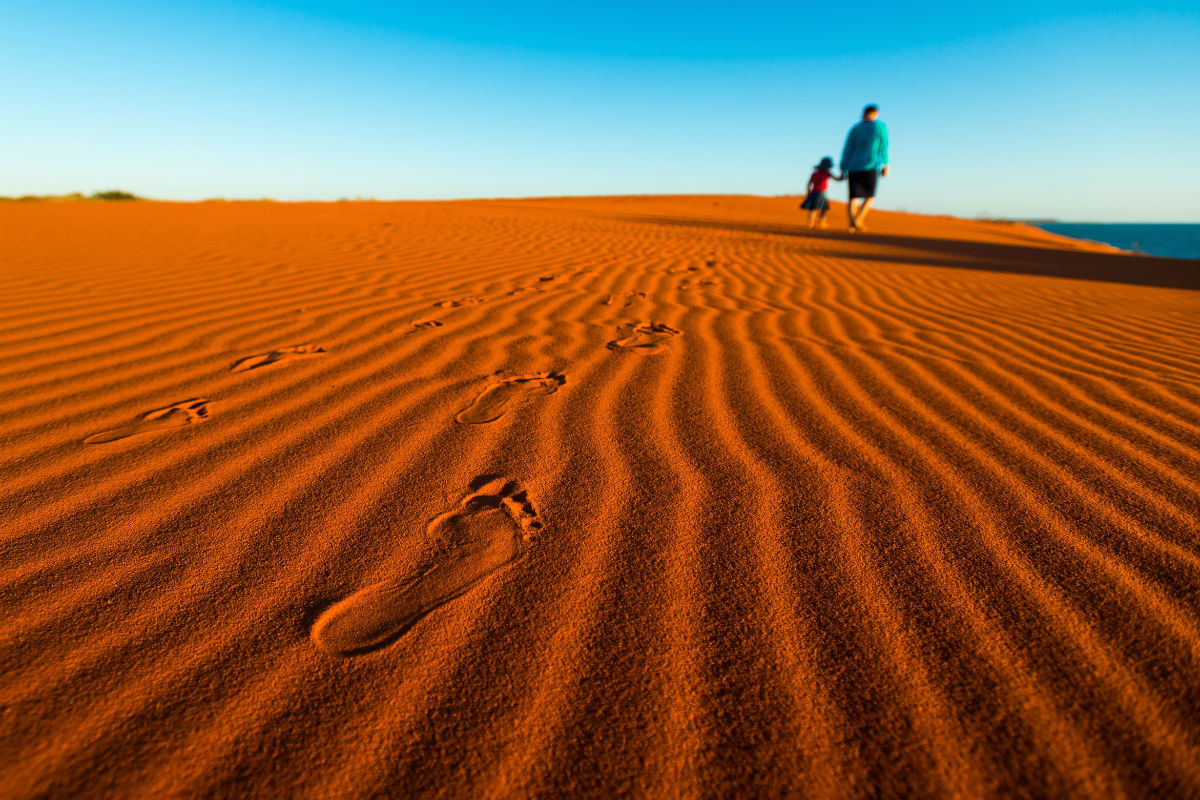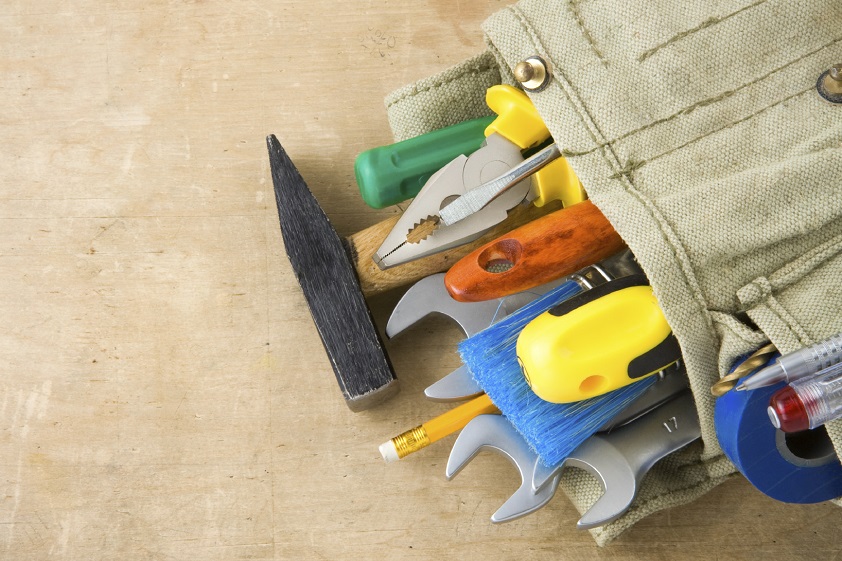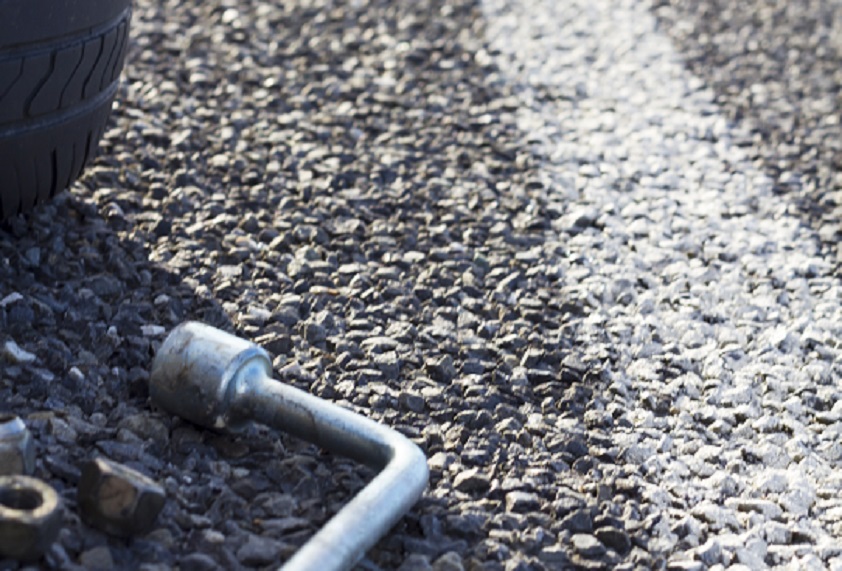Whether you’re doing it by instalments or you’re going the whole hog, the big lap is more than a mere holiday. You’re putting life on hold and taking your home on the road for weeks and months on end. But you’ve got limited payload – possibly as little as 200–300kg – so what do you pack?
Storage
Storage space is at a premium in a caravan, so using stackable plastic bins is a great idea for keeping small things together. Give each person one or two bins for their clothing, shoes and other personal effects. Use them in the kitchen to keep foods separate and compact. For example, cereal boxes can be large and should be transferred to more space-efficient storage containers or just left in their bags.
Clothing
Pack according to climate, which in most cases is going to be warmer weather. However, be prepared for some cool weather – even in hot areas in warmer months, temperatures can literally halve at night, so study the average temperatures and rainfall for the regions you’ll be visiting. Also, it’s a good idea to estimate how often you’ll be doing a wash. Here’s a basic list for one person:
- 3 T-shirts.
- 1 pair of cotton shorts.
- 2 pairs of board shorts.
- 1 pair of long pants/jeans.
- 1–2 pairs of climate-appropriate pyjamas.
- Enough pairs of underwear and socks to last between washes.
- Headwear: hat, sunglasses, beanie (where appropriate).
- 1–2 pairs of shoes (1 appropriate for hiking).
- 1–2 pairs of thongs.
- 1 light jacket in summer/1 heavy jacket in winter or cooler areas. These jackets would ideally be weatherproof, too, especially for the person most likely to be changing a tyre or putting up an annexe in the rain. If possible, you may want to squeeze in a set of good clothes for those times when you need to scrub up.
Linen
Standard army issue per person, but throw in a couple extras for emergencies. You should bring:
- 1 pillow.
- 2 sheets.
- 2 pillowcases.
- 1 blanket/sleeping bag.
- 1 towel.
If you’re travelling between seasons, storing bulky items such as jackets and heavier doonas can be made easy with sealed vacuum storage bags.
Kitchen: Food
Pack staples and top up your perishables as needed. Establishing a set menu for most of the week will help you plan and budget, plus it’s a great way of catering for kids. Here is an example of a shopping list that will equip you to make most common meals:
Grains
- Rice.
- Self-raising flour.
- Couscous.
- Pasta.
- Cereal.
Condiments/tinned foods/others
- Salt.
- Pepper.
- Sugar.
- Powdered stock.
- Tomato sauce.
- Soy sauce.
- Sweet chili sauce.
- Jam/honey.
- Vegemite.
- Cooking oil.
- Coffee and tea.
- Baked beans and other tinned foods.
- Crackers.
- Snacks.
Fruit and vegetables
- 1–2 portions of fruit per day.
- 4–5 portions of vegetables per day.
Protein
- Sausages.
- Bacon.
- Eggs.
- Red meat or white meat.
- Milk (fresh and/or long life).
- Cheese.
- Butter.
Be sure to take advantage of regional foods and don’t forget to stock up on those luxury items you can’t live without as you probably won’t have access to them away from home.
Kitchen: Equipment
Like food, kitchen equipment can get bulky, so it’s important to minimise what you take, wherever possible. Stackable cookware and plastic crockery is a great way to start. Include one or two extra sets of crockery in case you have visitors. Also, consider a multi-cooker – just as the name suggests, it’ll cook everything, including stews, soups, perfectly steamed rice and even cakes. Here’s the list:
- Cookware with lids: frying pan, large/medium pot and medium pot.
- Plastic crockery per person: dinner, bowl, bread plate and cup/mug.
- Sharp knives: chopping knife, bread knife, carving knife and paring knife.
- Chopping boards.
- Cutlery per person.
- Can opener.
- Paper towels.
- Cooking utensils.
- Stackable mixing bowls with lids.
- Storage containers for leftovers.
- Glad bags, cling wrap and tin foil.
- Broom, dustpan.
- Rubbish bags.
- Lightweight trivets.
- Multiple water bottles.
- The kettle and toaster are bulky items that you may decide to live without, given that you can make toast and boil water on the stove. If you have children, a toaster is probably a necessity.
Bathroom
Everyone has their personal preferences, but it’s preferable if you can rationalise and stick to one brand of everything. If you use niche toiletries, you’ll need to pack enough for the trip or be prepared to switch to common brands part way through. You’ll need:
- Shampoo and conditioner.
- Soap.
- Laundry detergent.
- Razors.
- Toothbrushes and toothpaste.
- Cassette-friendly toilet paper.
- Toilet chemicals.
- Cleaners.
- Sunscreen.
- Insect repellent.
- Rags, scourers and sponges.
- Buckets.
Equipment
Your safety kit should be at the top of this list. It should include a first-aid kit, reflective triangle and collapsible witch’s hat, high-vis jacket, and fire-extinguisher (tow vehicle and caravan) as a minimum. Your toolkit should include everything you need to keep your caravan in working order; that is:
- Safety kit.
- Basic toolkit.
- Emergency Position Indicating Radio Beacon (EPIRB).
- Corner steadies and stabilisers.
- Towing mirrors.
- Compressor/tyre sealant.
- Snatchem strap.
- Jack stands.
- Spare jack.
- Torches.
- Rope.
- Duct tape and electrical tape.
- Spade.
Spares
If you’re doing long stints away from large towns, it’s important to consider which spares you’re likely to need. You’re immediately at an advantage if both your caravan and towing vehicle share the same wheels and tyres. Make sure you have:
- 2 wheels and tyres.
- 1–2 wheel bearings.
- Nuts and bolts in common sizes.
- Electrical wire and crimp connectors.
- Light bulbs (interior and exterior).
- Radiator hose and clamps.
- Fanbelt.
- Coolant.
- Motor oil.
Camping
These additions can free you up to camp away from your caravan:
- Backpacks.
- Tent.
- Portable gas stove.
- Small esky or cool bag.
- Compass.
- Water bottles or backpack water bladder.
Miscellaneous
This list could be endless, but here are a few items we’ve come up with:
- Board games.
- Spare smart phone/tablet chargers (they break often but you can’t buy them everywhere).
- 15-amp extension leads and power boards.
- Boogie boards.
- Snorkelling gear.
- Mozzie coils/candles.
- Walkie-talkie handsets.
- Laptop, small ink jet printer, paper and cartridge refills.
This is our recommended packing list – but of course you should take into account your own needs and preferences when you pack!





